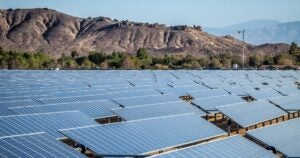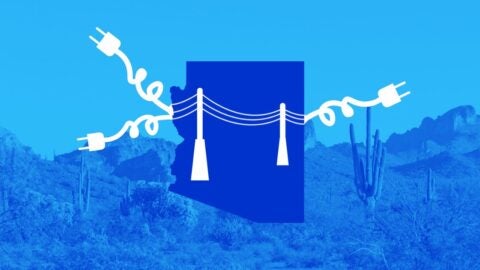
California and Quebec have a major opportunity to raise the ambition of their linked carbon market
When the California Air Resources Board (CARB) finalized its Scoping Plan last year, it marked a critical milestone in charting an ambitious – but achievable – path toward a safer, climate future for communities across the state. Now, it’s time for CARB to put that plan into action.
The good news is that air regulators are taking a key step forward with a new joint workshop between California and Quebec on June 14 that will focus on potential amendments to the linked cap-and-trade program. The workshop will discuss the status of the current regulation and, critically, the scope of potential updates to bring the regulation in line with CARB’s 2022 Scoping Plan, which sets a goal of 48% emissions reductions by 2030 – an essential target to ensure California reaches its long-term reduction goals.
Stepping up ambition this decade
This rulemaking workshop is a huge opportunity for CARB to start implementing the increased near-term ambition identified in the 2022 Scoping Plan and put California on track to achieve net-zero emissions no later than 2045. Meeting these goals is critical to protecting California communities from the most devastating climate change impacts like droughts and wildfires, and intense unpredictable precipitation like that seen across the west coast this year. EDF has emphasized the urgency required in undertaking this rulemaking since the adoption of the 2022 scoping plan and commends CARB for starting this important process. As things progress, CARB needs to stick to the timeline announced at the March legislative oversight hearing and ensure that any changes to the program will go into effect no later than January 1, 2025.
Following recommendations from the Environmental Justice Advisory Council
As California and Quebec explore ways to strengthen their joint program through increased near-term ambition, there are other points of discussion that this workshop should cover. Strategies for improving cap-and-trade to address local air pollution, as the Environmental Justice Advisory Council has advocated, should be considered in these discussions, along with the following important program adjustments:
- introducing facility-level caps on polluters operating in vulnerable communities in order to ensure that direct pollution cuts are seen,
- creating an emissions containment reserve (a design feature that ensures that when demand for allowances decreases, the overall supply of allowances is also reduced), and
- requiring that offset credits are counted beneath the set limit of emissions rather than in addition to allowances.
Linking with Washington state’s market
Additionally, this workshop and rulemaking are a timely opportunity for California and Quebec to discuss their process and considerations for linkage with Washington’s cap-and-invest market. Washington’s Department of Ecology, which recently concluded their own series of public comments and workshops on the topic, is expected to release a decision on their plans to pursue linkage this summer. Linkage presents the opportunity for scaled-up, regional action on climate change. With the need for ambitious action more apparent than ever, California and Quebec should ensure that they’re preparing their own processes to explore the steps needed to create a broader regional market by linking with Washington.
The workshop, which will be held on June 14, is a step towards concrete action to cut planet-warming pollution at the pace and scale demanded by the climate crisis. It is open to the general public, and we encourage readers to register, attend, and provide comments in support of a more ambitious path forward. Stay tuned for EDF’s analysis of the process.













